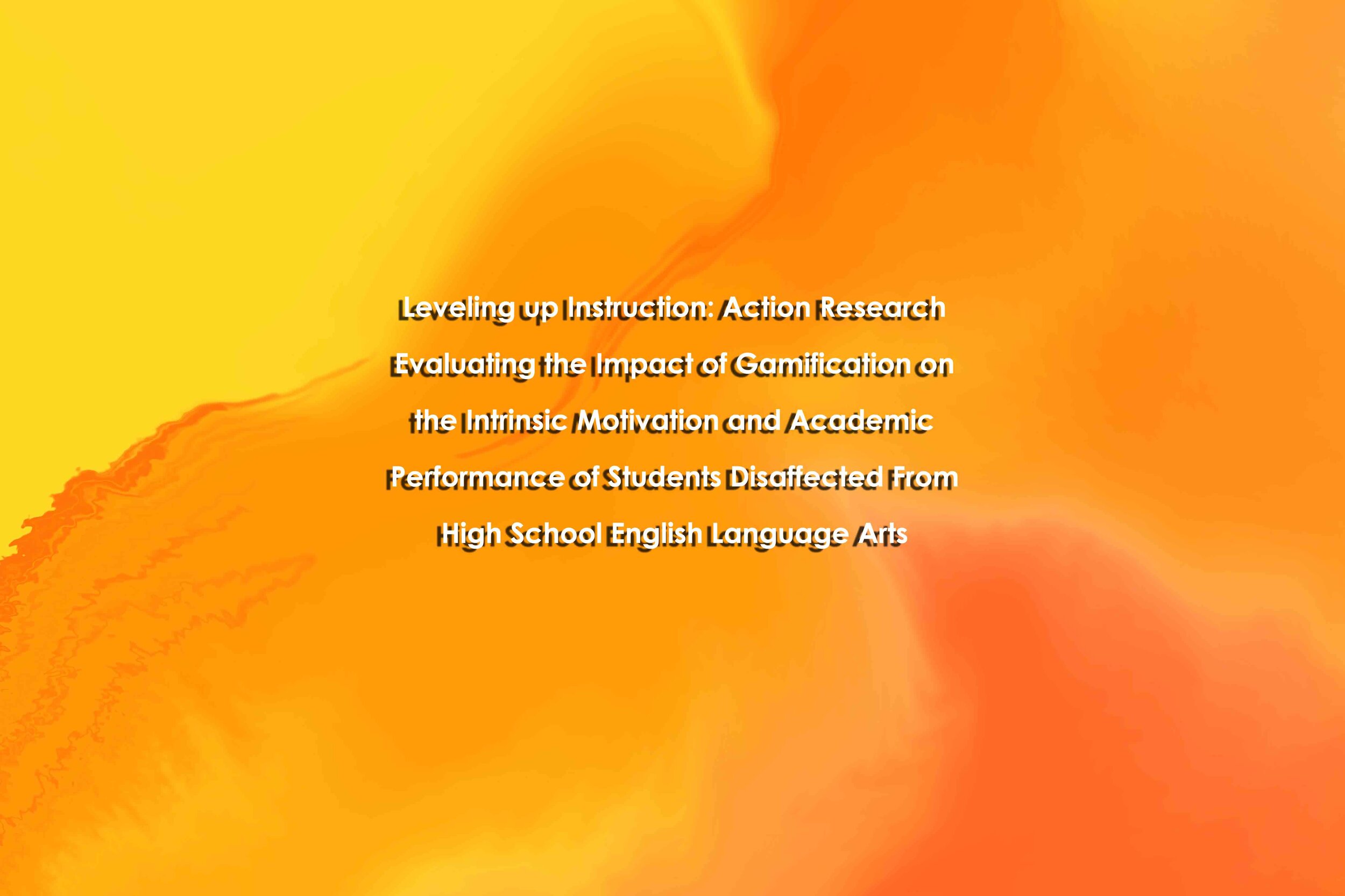Leveling up Instruction: Action Research Evaluating the Impact of Gamification on the Intrinsic Motivation
Leveling up Instruction: Action Research Evaluating the Impact of Gamification on the Intrinsic Motivation
Leveling up Instruction: Action Research Evaluating the Impact of Gamification on the Intrinsic Motivation and Academic Performance of Students Disaffected From High School English Language Arts
Michael Brian Jett
Abstract
"The purpose of this action research was to evaluate the impact of gamification on the intrinsic motivation and academic performance of students disaffected from high school English language arts (ELA). Three questions guided this study: (a) how does gamification affect the intrinsic motivation of students disaffected from high school ELA, (b) does gamification affect the academic performance of students disaffected from high school ELA, and (c) what recommendations can students offer after reflecting on their experiences with gamification? The game elements of challenge, narrative, role-play, and teamwork were incorporated into the design of a five-week instructional unit focused on research and argumentative writing skills. Participants (n=19) were purposefully selected from the teacher-researcher’s 12th grade ELA courses based on their disaffection relative to their peers. Utilizing a convergent parallel mixed methods approach, data were collected through the Intrinsic Motivation Inventory (Ryan, 1982), focus group interviews, and a teacher-made assessment of student learning (i.e., Argumentative Research Skills Assessment). Quantitative data were analyzed using descriptive and inferential statistics and correlation tests. Qualitative data were analyzed inductively using constant comparative methods. The results revealed a significant increase in participants’ intrinsic motivation and academic performance after exposure to gamification. While significant associations were found between participants’ feelings of intrinsic motivation and competency, no significant associations were found between gamification and academic performance. These findings indicated that while gamification affected the intrinsic motivation of participants through supporting their feelings of autonomy and relatedness, its greatest impact came through supporting their feelings of competency. Moreover, while participants’ academic performance increased after exposure to gamification, the lack of significant associations rendered it impossible to say whether gamification itself resulted in this increase. Participant recommendations, implications, and limitations to the study are provided."
Reference
JJett, M. B.(2020). Leveling up Instruction: Action Research Evaluating the Impact of Gamification on the Intrinsic Motivation and Academic Performance of Students Disaffected From High School English Language Arts. (Doctoral dissertation). Retrieved from https://scholarcommons.sc.edu/etd/6043
Keywords
Gamification, Intrinsic Motivation, Students, Development

